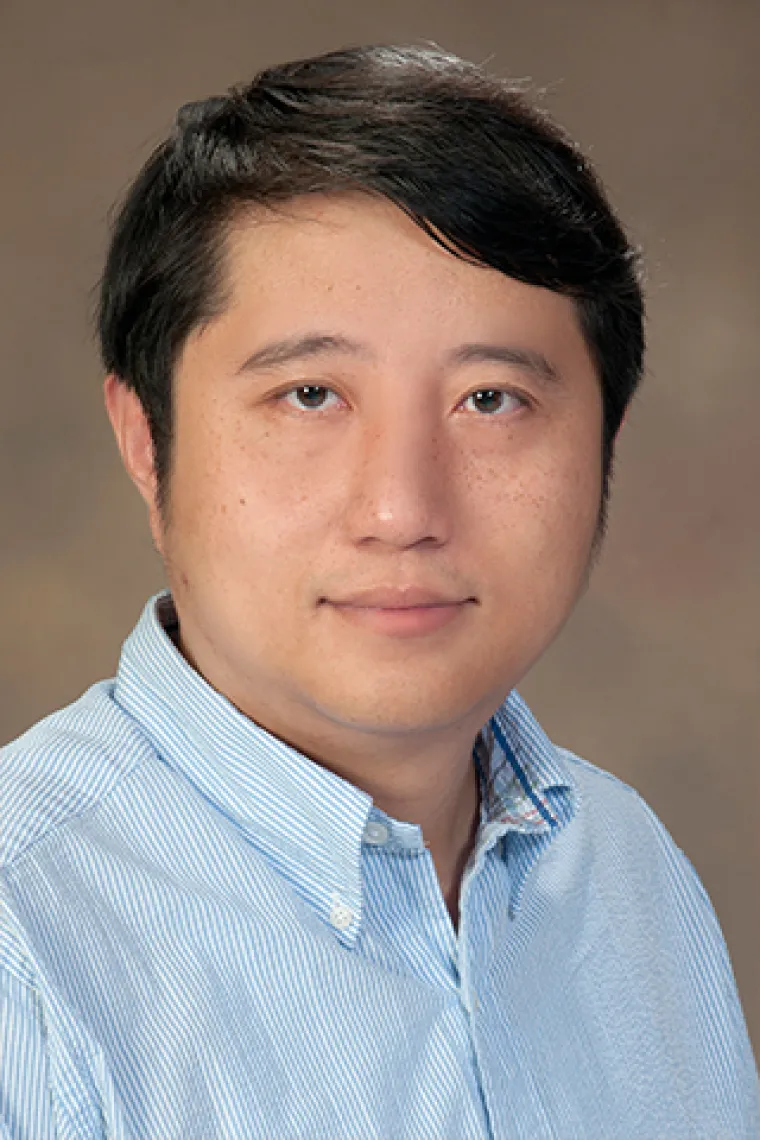Yin Chen
Professor, Pharmacology and Toxicology
Director, MSPS In-Person
Associate Professor, BIO5 Institute
Member, Southwest Environmental Health Sciences Center
Research
Dr. Chen’s laboratory utilizes cutting-edge technologies (e.g. single cell RNAseq, CRISPR, gene-targeting mouse models, etc.) to understand molecular pathogenesis of various lung diseases. The goal is to identify novel targets for therapy and drug development. Dr. Chen’s research has been continuously funded by the National Institute of Health as well as foundations and state departments for over 18 years.
- Mucosal innate immunity and COVID-19 SARS-COV-2 infections do not necessarily lead to COVID-19. Many infected people develop no or very mild symptoms. Our research is to identify key drivers that cause the severe COVID-19. Working in the BSL3 facility, we have developed novel mouse models and human organoid models of SARS-COV-2 infection. Interestingly, although airway epithelial cells are the primary site of viral infection, normal epithelia effectively repress viral replication, and the mouse model of epithelium-only infection causes a mild disease. Current ongoing research is to elucidate true vulnerable cell types and pathways that lead to the severe disease.
- Fungal infection and fungal asthma Fungi is universally present in the environment. A unique character of fungal pathogenesis is that even dead fungi can cause diseases such as asthma. Our research seeks to elucidate pathogenic mechanisms of both fungal infection and fungal asthma. We are working on both BSL-2 fungi such as Aspergillus and Alternaria, both of which are major etiological agents causing severe asthma, and BSL-3 fungi such as Coccidioides, which is infectious and causes valley fever. The current research focus is about the innate immunity that protects human from these fungal exposures/infections. Because fungi are eukaryotes, fungal proteins tend to share homology with their human counterparts, which represents a significant barrier for anti-fungal drug development. My team seeks to overcome this hurdle by an alternative approach to enhance host antifungal immunity to combat fungal infection. Immune modulators and vaccines are currently under development.
- Metal/metalloid toxicity and lung health This line of research focuses on impacts of environmental metal (e.g. vanadium) or metalloid (e.g. arsenic) exposure on human immunity and lung health. We are particularly interested in the function and regulation of secretoglobin family members such as SCGB1A1, 3A1 and 3A2. These proteins play an important role to protect against metal/metalloid induced lung toxicity. We are very excited about therapeutic potentials of SCGB replacement (via recombinant protein instillation) or enhancement (via retinoids treatment) to restore impaired lung functions caused by these harmful exposures.
Awards:
- Young Investigator Award of Inhalation and Respiratory Section,
- Society of Toxicology, Spring 2015
Degrees
- PhD, Genetics, University of California Davis, 2001
- BS, Biochemistry, Nanjing University (China), 1996


